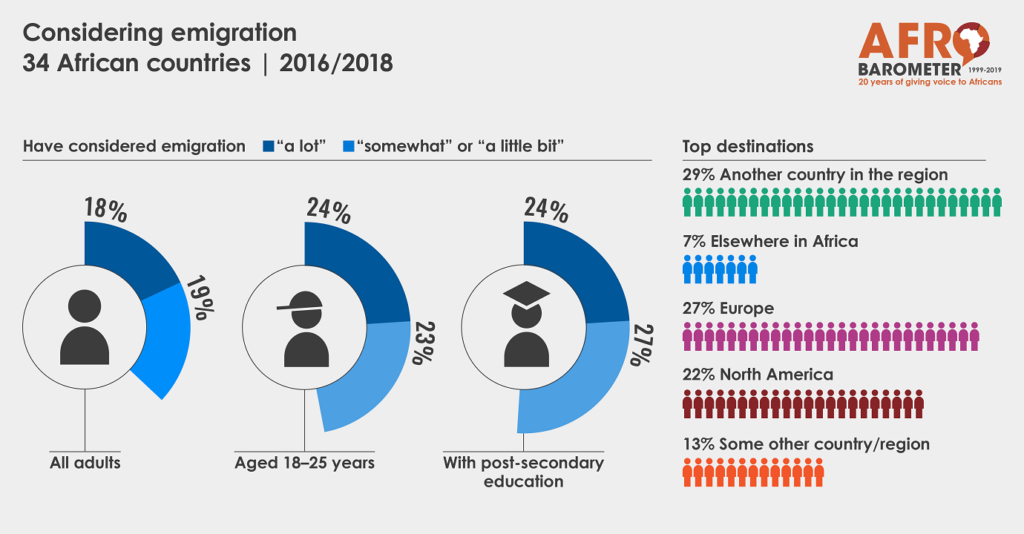
Nearly one in three people living in West and Central Africa fear losing their homes and land in the next five years, according to a survey of 33 countries, making it the region where people feel most insecure about their property, Reuters reports:
More than two in five respondents from Burkina Faso and Liberia worry their home could be taken away from them, revealed Prindex, a global property rights index which gauges citizens’ views…. A lack of formal documentation and poor implementation of land laws threaten tenure in many countries, experts say, with more than 5 billion people lacking proof of ownership, according to the Lima-based Institute for Liberty and Democracy.
In West Africa, “a history of governments and investors seizing land for large projects has made people more insecure,” said Malcolm Childress, executive director of the Global Land Alliance, a Washington-based think tank that compiles the index. Insecurity can lead to people struggling to plan for their futures, holding back entire economies, he said.
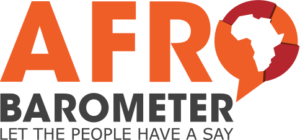 More than a third of all Africans consider migration in search of opportunity, especially as the continent’s young and educated populations continue to grow, according to new data (above) from Afrobarometer:
More than a third of all Africans consider migration in search of opportunity, especially as the continent’s young and educated populations continue to grow, according to new data (above) from Afrobarometer:
More than half of the people living in five countries said they had considered leaving, all of them in West Africa. Cabo Verde and Sierra Leone had the highest rates at 57 percent, followed closely by The Gambia, Togo, and São Tomé and Príncipe. Zimbabwe and Lesotho are the countries with the highest rates of people applying for visas or taking other concrete action to leave.
“Potential emigrants are overwhelmingly motivated by a hunger for jobs and economic opportunity,” said Afrobarometer, a partner of the National Endowment for Democracy. “But contrary to the notion that migrants are simply a country’s most impoverished citizens, youth and education are far more strongly correlated with interest in emigration than poverty.”

China aims to establish a new world media order in which journalists are nothing more than “state propaganda auxiliaries,” press watchdog Reporter Without Borders (RSF) said in a report published on Monday. From exporting censorship models to dictatorial states to launching intimidation campaign against dissidents, the report highlights how China’s crackdown on press freedom serves as a direct threat to democracies worldwide, Deutsche Welle reports:
 China’s state-owned China Global Television Network (CGTN) is particularly ambitious about expanding its influence in Africa through dedicated daily programs about the continent and telecommunication giant Huawei’s expansion in Africa, where Huawei has installed 70 percent of the telecommunication infrastructure. However, while claiming to introduce the “real” Africa to the world, CGTN also focuses on polishing up China’s image through positive coverage of China’s activities in the continent.
China’s state-owned China Global Television Network (CGTN) is particularly ambitious about expanding its influence in Africa through dedicated daily programs about the continent and telecommunication giant Huawei’s expansion in Africa, where Huawei has installed 70 percent of the telecommunication infrastructure. However, while claiming to introduce the “real” Africa to the world, CGTN also focuses on polishing up China’s image through positive coverage of China’s activities in the continent.
“A lot of CGTN’s content is no longer just about China and Africa as Beijing puts more efforts into producing original content about Africa,” Chenshen Yan, researcher at the Institute of International Relations at National Chengchi University, told DW. “In other words, China will be able to dictate international discussions about Africa in the future,” he added.
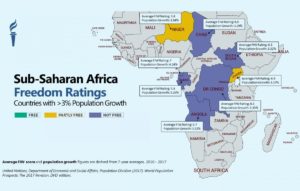 It’s a busy year for democracy in Africa, with 23 presidential, parliamentary and council elections in 2019. This reflects that elections have become an integral part of the continent’s democratisation process since the “Third Wave of Democratisation” in the late 1980s and early 1990s, adds Michael Khorommbi, a researcher on regional integration and peace building in Africa
It’s a busy year for democracy in Africa, with 23 presidential, parliamentary and council elections in 2019. This reflects that elections have become an integral part of the continent’s democratisation process since the “Third Wave of Democratisation” in the late 1980s and early 1990s, adds Michael Khorommbi, a researcher on regional integration and peace building in Africa
“The continent’s political landscape has changed dramatically since the 1990s, with many, if not all, countries on the continent now in support of multi-party and competitive elections,” he adds. “However, it is clear from Africa’s first general election of the year – Nigeria – that elections still take place under very difficult conditions.”
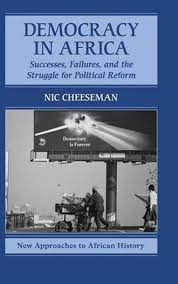 Democracy promotion policies suffer from some flaws and inconsistencies and the nature of Africa’s hybrid and ambiguous regimes present severe challenges, notes analyst Oda van Cranenburgh. Competing economic or strategic interests often trump the promotion of democracy and human rights, she writes.
Democracy promotion policies suffer from some flaws and inconsistencies and the nature of Africa’s hybrid and ambiguous regimes present severe challenges, notes analyst Oda van Cranenburgh. Competing economic or strategic interests often trump the promotion of democracy and human rights, she writes.
Security interests are taking precedence in the face of the threat of radical extremism, observers suggest.
For example, Burkina Faso is fighting for democracy, but are the terrorists winning? the Washington Post asks:
The West African nation was expected to adopt presidential term limits through a long-anticipated national vote, even as Islamist violence gripped the countryside. But days before the polls were to open, the government has postponed that milestone indefinitely and without explanation.
Analysts had called the constitutional referendum a bright spot during turbulent times for the Colorado-size nation. Extremist attacks in Burkina Faso have quadrupled since 2017, according to the Africa Center for Strategic Studies in Washington.
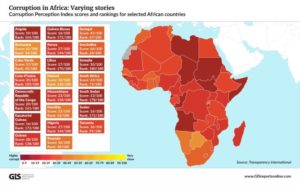 “It could be they just didn’t get themselves organized,” said Joseph Siegle, the center’s director of research. “It could be politics. Or it could be tied to the insecurity.”
“It could be they just didn’t get themselves organized,” said Joseph Siegle, the center’s director of research. “It could be politics. Or it could be tied to the insecurity.”
“The scholarship on democracy promotion agrees that positive change can be achieved where internal conditions are favorable and when policies take into account the specific political and institutional contexts in African countries,” van Cranenburgh contends. “Broader long-term regime change, however, depends primarily on internal conditions, such as social and economic development, and requires donors to go beyond the ‘easy part’ and address specific African contexts and specific institutional problems.”







